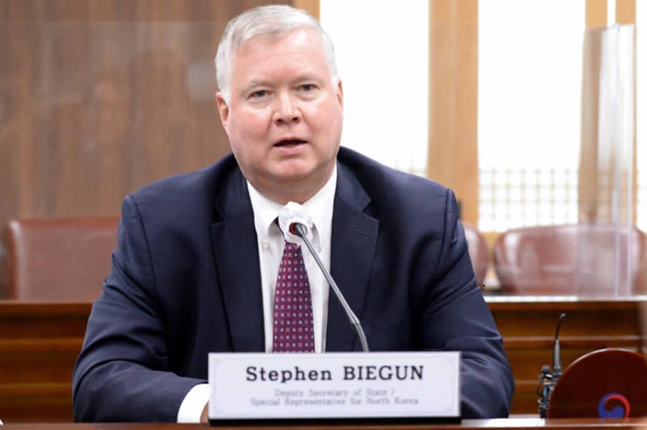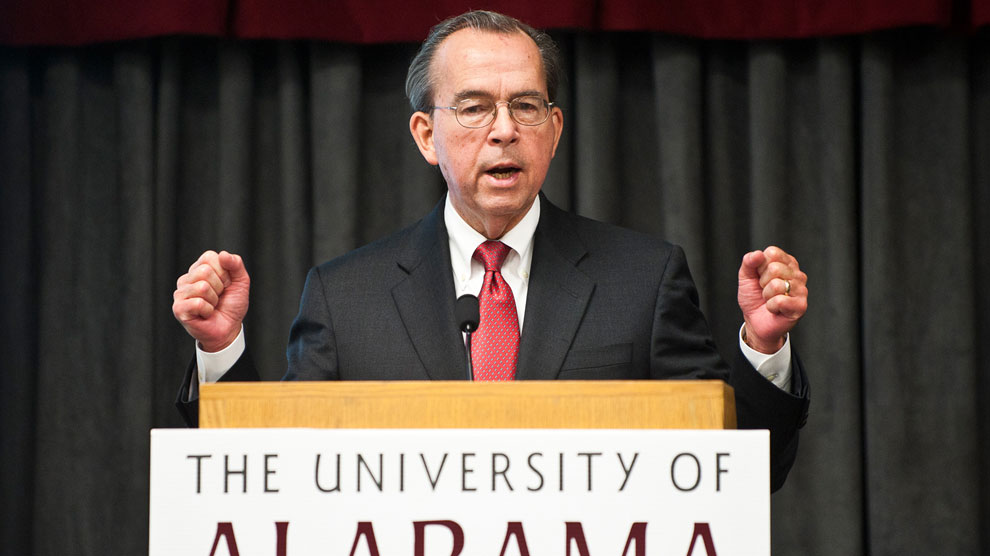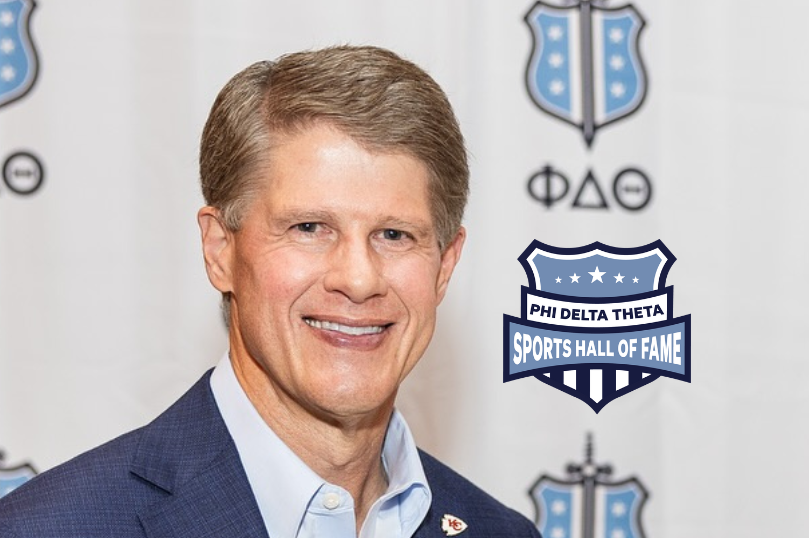Stephen E. Biegun, Michigan ’85 is an experienced business leader and international relations expert. He spent fifteen years in the private sector as a corporate officer and senior executive with one of America’s largest global corporations and he has nearly two decades of high-level government service with the Department of State, the White House, and the United States Congress. Through his years in the private sector and government service, he has developed a global network of relationships and a keen understanding of international affairs, international business, and global trade, with extensive expertise in a wide range of public policy matters.
In 2021, Mr. Biegun concluded his most recent government service as the Deputy Secretary of State, the number two diplomatic position in the United States government. A widely respected foreign policy leader, he was appointed by the President and Secretary of State and confirmed by the United States Senate with a bipartisan vote of 90-3.
At the State Department, Mr. Biegun was responsible for leadership, management, and communications for a 76,000-person workforce posted worldwide. He personally led efforts on recruitment, talent development, and retention with a particular emphasis on implementing a comprehensive overhaul of the Department’s diversity, equity and inclusion initiatives. He was the senior-level official responsible for all decisions related to the Department’s $41 billion operations and foreign assistance budget.
Mr. Biegun coordinated and led the execution of State Department policy toward China. He also led the formulation of US policies with Indo-Pacific allies and partners, especially Japan, India, Vietnam, Australia, and New Zealand. He managed bilateral relations with Canada and Mexico, with members of NATO and the European Union, and with key partners in Africa and the Middle East. Mr. Biegun recruited, appointed and directed senior-level envoys for Arctic policy and arms control negotiations.
He served as lead representative for the Department for policy development on national security and foreign policy related export controls and trade sanctions, represented the Department in the CFIUS process for approval of investments and transactions reviewed for national security considerations, and oversaw all Department efforts on technology transfer, non-proliferation, and cyber policies. His hands- on diplomatic negotiations in support of the Belarusian opposition and to end the conflict in Nagorno- Karabakh were key in stemming the violence and bloodshed in those regions.
During his tenure as Deputy Secretary of State, Mr. Biegun also served concurrently as the lead negotiator for the United States government with North Korea, working in close coordination with counterparts in South Korea, Japan, Russia, and China to pursue the elimination of nuclear weapons on the Korean peninsula and normalize US-North Korea relations. As part of these responsibilities Mr. Biegun made several trips to North Korea.
With the spread of the COVID-19 pandemic, Mr. Biegun led State Department efforts to repatriate more than 100,000 American citizens trapped abroad due to rapidly closing borders and changing travel rules. He built international partnerships to identify global supply chain opportunities for the United States to acquire urgently needed supplies of personal protection equipment for healthcare providers, and he directed the execution of global assistance programs to assist other nations in overcoming the effects of the pandemic.
Prior to his most recent government service, Mr. Biegun served for fifteen years as a corporate vice president with Ford Motor Company. At Ford, he led an eighty-person global team and managed a $15 million operations budget with responsibility for all international public policy, regulatory, and governmental affairs issues including global market analysis and due diligence, negotiation of business incentives, shaping international trade agreements, and advising on new business acquisitions and investments.
At Ford, Mr. Biegun led successful negotiations with governments in Mexico, Canada, Brazil, Argentina, Nigeria, South Africa, Vietnam, Thailand, India, and Australia on infrastructure and tax incentives exceeding $9 billion in support for new or expanded industrial investments. He co-led negotiating teams that successfully acquired a bankrupt industrial complex in Romania to improve Ford’s cost base in Europe and a team that acquired a local manufacturer in Brazil to increase Ford’s reach into a new market segment, and he brokered Ford’s expansion in the Russian Federation through the creation of a joint venture with a Russian partner. Mr. Biegun also led global risk assessment for Ford and developed mitigation strategies, with particular focus on international supply chain protection and improvement. During Mr. Biegun’s tenure at Ford, he was recognized several times as one of the Company’s top achieving senior executives, and he concurrently served in leadership positions with several outside business organizations.
Mr. Biegun began his career as a foreign policy specialist with the United States Congress with a focus on Russia, the former Soviet Union, and Europe, ultimately rising to senior-level positions including as chief of staff of the Senate Foreign Relations Committee and as the national security advisor to Senate Majority Leader Bill Frist. He served two years as the Executive Secretary of the White House National Security Council, fulfilling the role of chief operating officer of the 250-person organization with a $20 million operating budget and serving as a close advisor and deputy to National Security Advisor Condoleezza Rice.
Mr. Biegun has served as a spokesperson for many of the organizations with which he has worked including frequent speeches and interviews in electronic, print, and broadcast media as well as numerous appearances to testify before Congressional committees. He has volunteered as a board member for several national and local non-profit organizations and has led mentoring programs for next generation United States foreign policy and national security leaders. He graduated from the University of Michigan, Ann Arbor with a bachelor of arts in Russian language, and political science.





